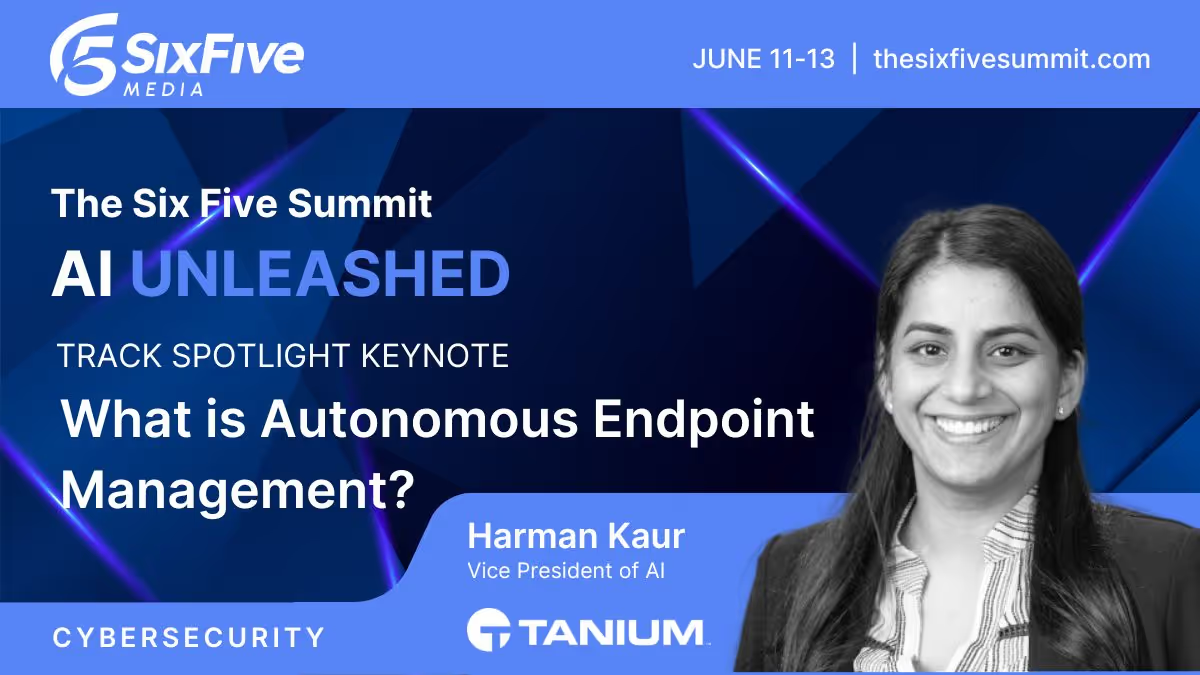Home
Inside Samsung’s Business Play: AI, Foldables, and the Power of Mobile Transformation- Six Five On The Road
Inside Samsung’s Business Play: AI, Foldables, and the Power of Mobile Transformation- Six Five On The Road
Tyler Gipson, GM and Head of Samsung Mobile B2B at Samsung Electronics America, joins Patrick Moorhead to discuss the latest innovations revealed at Galaxy Unpacked in Brooklyn.
What came out of Samsung Unpacked 2025 and why should the enterprise care?
Host Patrick Moorhead sits down with Tyler Gipson, General Manager & Head of Samsung Mobile B2B at Samsung Electronics America, for an exclusive deep dive into how the latest AI-powered foldables & wearables are set to deliver commercial impact and practical business applications.
Key takeaways include:
🔹Unpacked Highlights: A Glimpse into Tomorrow: Get a firsthand account of the most innovative features and advancements unveiled at Galaxy Unpacked July 2025, setting the stage for the next era of mobile business.
🔹Beyond the Consumer Realm: Discover the surprising and practical ways businesses are leveraging foldable phones today, emphasizing real-world use cases that drive efficiency and competitive advantage.
🔹AI's Transformative Power in Your Pocket: Explore the significant impact of Artificial Intelligence directly on foldable phones and wearables, detailing how AI enhances capabilities, boosts productivity, and streamlines workflows for business users.
🔹Wearables & the Business Ecosystem: Go beyond smartphones to understand the strategic business implications of the new Samsung Watch series, and how these intelligent wearables are seamlessly integrating into enterprise ecosystems to unlock new potential.
Learn more at Samsung Electronics America.
Watch the video below at Six Five Media, and be sure to subscribe to our YouTube channel, so you never miss an episode.
Or listen to the audio here:
Disclaimer: Six Five On The Road is for information and entertainment purposes only. Over the course of this webcast, we may talk about companies that are publicly traded, and we may even reference that fact and their equity share price, but please do not take anything that we say as a recommendation about what you should do with your investment dollars. We are not investment advisors, and we ask that you do not treat us as such.
Patrick Moorhead: The Six Five is On The Road. We are at Samsung Galaxy Unpacked and as you can see, Brooklyn in the background. We just got back from their big tent event. It was cool. Many announcements across the Galaxy line and watch and a few surprises in there. And I can't imagine a better person to break this down for the B2B side than Tyler with Samsung. Tyler, how are you, my friend?
Tyler Gipson: I'm great. Thank you for having me.
Patrick Moorhead: First time on The Six Five. Pretty glad to have you. You know, I've been coming to Galaxy events for, I don't know, at least a decade. Probably further. I need to go back. And you probably go back even further. But maybe a great place to start is to talk about what you do for Samsung. Maybe a little bit of your background.
Tyler Gipson: Yeah, so just a quick background. I've been with Samsung for a little less than two years now. September of 2023. For the majority of that, I spent running our AT&T relationship. And about a quarter ago they asked me to come run the B2B side of the business. And so prior to coming to Samsung, I had spent about 23 years at Cisco, a lot in the carrier space and a lot in the B2B space. And so I thought, you know what, let me get back to home a little bit and come back and help run the B2B business here.
Patrick Moorhead: Yeah, I had a great time swapping stories and names with you in the green room. It wasn't actually green, but we did green room type of things. And I think we know a lot of the same people, but you know, as analysts that we do primarily B2B as well, but it's great stuff. So your event I thought was very meaningful. In fact, as analysts, we get pre briefed, we know what's coming. When I first saw it, it was like, this is the biggest announcement that I've seen in five or six years from Samsung. Can you talk a little bit about the key announcements here.
Tyler Gipson: Yeah, I think you could summarize it in three words. The Ultra unfolds. If you look at what we announced today, well, first you have to step back a little bit. We're in our seventh generation of our fold family. Flip and fold family. We created the category and I think after what you see today, it would be hard to argue that this wasn't the most revolutionary introduction in our seventh generation, especially to the Fold 7 today. And just to kind of give you an idea of what we mean by ultra unfolds, think about how the Fold 7 got lighter, right? Thinner, stronger, yet better camera, better battery, bigger front screen. So like you think about the engineering feat that just goes into the fold alone. And to improve all those key things in one release, it now very much looks and acts and feels like a traditional bar type phone.
Patrick Moorhead: Can I do some show and tell? Would you mind?
Tyler Gipson: Absolutely. That's the most exciting part.
Patrick Moorhead: So I really got it. I love the way that you carry. It's basically the Ultra capabilities in a foldable now. So here is my Ultra 25 and here is the brand new Fold 7. As you can see, it's nearly as thick folded, but then I open it up and it's essentially a tablet. Okay. This is a big deal and it was very quick and easy to take . This is gonna grow the TAM for foldables that today are around 2% of the market. And what I love about what Samsung has done with this is the persistence that they keep improving piece by piece, knocking down objection by objection. And I think in a few years, particularly in the Ultra premium space, if you're not getting a foldable phone, you're probably sitting on the sidelines. I think that we could easily see a 2% to a 10% jump in the next couple years.
Tyler Gipson: Yeah, I mean we certainly hope you're right and expect that we'll continue to unlock the power of the category. To your point, one of the things I've been really impressed with Samsung since I've been here is we absolutely put the customer, whether it's a consumer or business, front and center of what we do. And so to your point, if you wanted to go to a full, we always knew it was the ultimate productivity device, especially for business customers. However, there are decisions you have to make. Did you want a better camera on the Ultra? Did you want a bigger front screen on a fixed form bar style phone? We eliminated all those differences. The thickness is now very similar to an S25 Ultra. As you just showed, it's lighter, it Folds out to an 8 inch tablet type display and then we could improve the camera to be. All right, let me start that one back. Sure. And then probably the most important thing that we did for the consumers but will also play well into the business clientele is we brought the ultra flagship camera to the fold. So now you really do have a tough decision to make. Do you want the ultimate work productivity device or do you want a traditional bar type phone? We think this will expand the audience for it. And then we can talk about some of the B2B use cases.
Patrick Moorhead: Yeah, I'd love to drill down on that personally. N equals one use case. I'm a business person, I run one company and I'm the co-founder of two others and I work a lot. I like to work and I prefer a fold, let's say over the flip. And can you talk about how businesses are currently using foldables?
Tyler Gipson: Yep, I'll talk about how. I'll give you a couple examples of kind of what we're seeing from CTOs and business owners and kind of how they're thinking of fold. I also have a good flip example for you. But there tends to be three things when we go out and talk to our customers that they talk about. One, of course TCO, everybody needs a return on investment for the investment they're going to make. The two on one use case of the fold is a very easy conversation to drive. However that tends not to be enough. If you look at a lot of our various retail segments, hospitality segments and others, it's really about how do I enable my employees to be more productive and more efficient and more engaging with customers and how do I improve my customer satisfaction and engagement and happiness and then how do I put the TCO behind it? And so what we've seen in working in the retail space, for example, with some very large sporting good retailers is putting the fold in managers hands. Allows them to be on the floor more, allows them to consolidate devices, allows them to interact with their employees more and allows them to interact with customers more. Therefore creating a much better experience for everybody involved as well as consolidating devices. And so that use case we're starting to see spread into other versions of retail customers. And now with this more pocketable form factor we think it's going to be a no brainer for them.
Patrick Moorhead: Yeah, it'd be interesting to connect that with Dex if they wanted to put it in and get a full basically PC experience.
Tyler Gipson: Yeah, you're a good front man. Dex is something that we've obviously had on the fold for a long time, which stands for desktop experience. But when you think about the Flip, it's something we haven't had on the Flip. And so what we announced today was we're bringing Dex capability to the Flip and so use cases. A really cool one that I like to quote is we've worked with some police departments out in the field that use the Flip for a portable body camera integrated with their system. It can trigger things like high speed chases to turn the camera on, that kind of thing. However, you're probably not going to use the Flip to fill out a report after a long report, but you can dock in the vehicle and now with Dex, you can use an extended monitor to actually have a desktop-like experience. So you get the best of both worlds with that compatible form factor and then a very usable desktop like experience.
Patrick Moorhead: You know, it's funny, some of the biggest innovators, some people say, are tech companies. But at the end, a lot of the biggest innovators end up being the people who are actually using it and finding new use cases for these. And I really think we're just at the beginning of this foldable, I'll call it a revolution here because quite frankly, once you get to, it's a full featured phone, highest level of performance, including camera, you get to a weight, you get to a thickness that makes sense and then obviously the price thing comes up. But listen, I do a lot of enterprise and I talk to a lot of them. The cost of the device is a very small portion of the overall TCO of that device. A lot more expense does go into the management of that device. And secondly, this conversation with AI coming in is not just about how I can get a device, the cheapest device, it goes into more of what you were talking about, let's say customer proximity. How can I increase revenue, how can I have happier customers? How can I have the people on the floor that I need to have on the floor? But AI is very new. We're probably year one or two into a 10 year cycle, maybe more. What do you think about AI and foldables? What are some, maybe new use cases, new things that you're thinking about?
Tyler Gipson: Yeah, it's a good question and you're absolutely right. I mean, we're in the early innings of AI, I think, no matter how you cut it. Right. So last January when we released the S24, we really, really led the industry with the first mobile AI phone. Absolutely. In the industry. And now we're on our fourth major product release with the Flipfold 6 last year, S25 this year, and now the Flip and Fold 7. And so we continue to iterate on AI, especially with our partners like Google and Gemini. And we'll talk about a little bit of the announcements we had today. I think it's evolving though. It's evolving from sort of point specific AI apps that consumers or businesses interact with to what you really heard us talk about today is sort of the multimodal functionality across apps. Previously we gave a very basic example of hey, I want to meet Pat in an Italian place in Brooklyn, book a restaurant for 7:30 and Gemini and Galaxy will help do that. If you can imagine forward in the business world as businesses grapple with what they do with AI, you could obviously see that same use case ripple across various business applications, whether it be internal word docs and functions, Outlook calendaring, or very specific content that they need to access for an employee out in the front lines. The multimodal development that you'll hear from us today, the ability to work across apps on the phone, as an example, maybe you're working on some text document that you want to summarize with Galaxy AI to summarize on the right side, but then you want to move that around and float it on the screen so you can go into other documents. It really becomes a very usable interface now, rather than going back and forth to different apps and comparing and contrasting. So we're very happy with that. Then the Flex AI window that I talked about about how you have information at your fingertip on the phone while you go through your other activities or other documents or other functions is going to be very beneficial to businesses. And then Knox, right, Knox is our secret weapon, if you will. The security that pins everything from hardware to software to persona differentiation on the phone, that will continue to be a very instrumental thing in how we secure the data. Because as you are probably well aware, and our audience is probably well aware, when we first introduced AI about a year and a half ago, we ran into our customers and we said, hey, we got AI on our phone. And they all said, great, turn it off. He said, no, no, we have AI on our phone. They said, turn it off. We don't know where the data's going, we don't know what to do with it, we don't know how to manage it. We're scared our company's confidential information is going to get put out in the public, et cetera, et cetera. And so I think the other thing we've done is really engage with our business customers to understand that journey and what they need. And what's become really clear is they want to be in control of the AI. They want to be in control of whether it's on the device, they want to be in control if it's in the cloud or both. And they want to be able to turn it on and off. They want to tell you what to access. And so we continue to work through that refinement and development using KNOX as sort of that enabler and working with our business customers to really understand what they need from it.
Patrick Moorhead: Yeah, in the last three weeks, I think I've met with, gosh, 50 CIOs, a crop over in Western Europe, and then recently at an enterprise event in of course Las Vegas, where they all are. One trend that I'm seeing is that what they want is a bunch of models to run their corporate applications on that go between their data center, industrial edge, PC, and the smartphone. I think that I'm seeing with a lot of consulting companies, some GSI's, they're creating these types of capabilities and CAO's are laying that strategy. It takes time. There's a lot of POCs that are happening, but I've even seen some financial applications, I've seen insurance applications. I know, put your phone up to the fender, it's dented and you get an automatic quote back. But now think with generative AI, you have 100x the power and performance. Some people would say 1000 times, what else can you do with that camera? What else can it tell you to do? How can it help you if you are fixing an air conditioning unit or you're working inside of a manufacturing plant to be able to, to put this up or I saw you flashed the wearable up there as well to really transform work. And I would like to say that AI transformed work. You know, that AI we had seven or eight years ago, it didn't as much as we thought. But I believe that this version of AI will and smartphones are a huge part of this. And I, I like you teasing your XR capabilities as well.
Tyler Gipson: I did too. I was happy to see that. We previously announced that we'll deliver what we call Project Muhan later this year at some point. And then you kind of start to talk about that multimodality that I talked about. We kind of think about it on the phone today. What could Gemini see on my screen or using my camera to your point, to help me kind of understand things. Then when you link that to a vision AI type of environment to go along with your phone. You could imagine in the business use case world, very large land or building owners that maybe have varying degrees of tenure in that building, 10, 20, 30, 50 years old, varying degrees of H vac and other systems that are antiquated. That takes a significant amount of investment to go out and manage those buildings, invest, fix things. And so some of the use cases we're seeing with our customers is how do I use some version of XR glasses or something out there. But I have something on my device that's really walking me step by step. So eyes in the field, something on a very nice foldable tablet like device that can walk me through step by step of what to do and you really start to transform the way businesses take care of their buildings and their investments and their fleet that goes out to manage all that.
Patrick Moorhead: Super exciting time. I am glad I'm still working here at this exciting time. I think we both probably lived through the client server, local social, mobile, first AI and now we're in generative AI. So it's super exciting. A lot of phone discussion today, a lot of AI discussion. But you also brought out a brand new series of watches. I happen to be into health and health and wellness big time. I've been very complimentary of Samsung Health and the capabilities, how it pulls together four or five different apps on other platforms, uses AI which is cool and one of the first to do that as well. How does that relate to businesses?
Tyler Gipson: Yeah, I mean maybe before I'll talk about how it relates to businesses but just a couple highlights from today and what we did announce with the Watch 8 and so you've got the Ultra on as I, I really love the cushion design of the Ultra and so you'll see that we brought that forward to the Watch 8 this year which I think gives us a very nice look. And then in addition, one of the big things we did this year is now you have Gemini on the wrist.
Patrick Moorhead: Yes.
Tyler Gipson: So this will be the first watch that has Gemini on the wrist. So you can think, talk to my watch. I've got an AI agent, it's a little easier to engage with and so two really cool things there. And I know you're a health nut as we've talked about. Proudly a health nut as you talked about. And so the vascular testing at night while you sleep is a new one and the antioxidant testing is a new and so a lot of really cool features as it relates to health. Now that's still a little bit of a consumer journey. And so you talked about how this relates to kind of B2B. That's right. We also introduced an acquisition of Zealth today. The CEO was on stage to give us a brief overview of that today. And so really what that is is a digital health platform that they already have about 500 hospitals and 70 plus third party applications signed up. And so we sort of see that as a digital platform to help us connect consumers such as yourself or consumers that need care as well with hospitals that have a lot of data to make a real, more real time engagement with them to lead to a healthier environment. So for my B2B team that covers healthcare and other regulated industries, we really see this as a way to enable customers, enable businesses to serve their customers and enable a much better quality of life for those end customers. And, and so you start to blend a little bit of the consumer and business journey in that. But I'm excited to see what we do with that business and that platform going forward.
Patrick Moorhead: I'm super excited. That's one thing I want to double click on when I leave this event. A lot of people today, they're taking screenshots of all their health stuff including hospital. They're dumping it into picking your favorite generative AI search bot and asking it and querying it. I have been absolutely amazed, particularly on let's say the deep research side. But now this is like potentially a frictionless type of environment to get better types of insights. Again buttressed with security and permissions and privacy. But I'm all in. I think that one of the most under-discussed topics is how generative AI and devices like yours are going to help us in healthcare help businesses. I mean healthy employees and active employees are super important. Listen, I wasn't signed up two years ago, but now I am. How important is it? Just the energy levels, the health span and just to be blunt, I think I work more and I'm happier.
Tyler Gipson: Your paycheck appreciates.
Patrick Moorhead: Exactly, exactly.
Tyler Gipson: I think there's a couple other use cases in there that are also to your point about the health of the employee or maybe the safety of the employee or the safety of the job. And so a couple other use cases we've seen fire departments partnering with a third party software company to enable fire departments to have a safety geolocation health kind of notification on watches so that they can manage their firefighters in the field. So safety of employees and their consumers in that side of the business. And then the other one, which is also a really, really good use case and actually near and dear to my heart, one of my kids has ADHD like a lot do. We've partnered with a third party software provider and therapeutics provider to use our watch to put on children, or adults for that matter, that have a special algorithm to help sort of notify them when they need to focus or maybe when they're drifting off a little bit. And so you can kind of think of the real use cases that drive through a business ultimately to consumers. And so those are the types of platforms we're trying to enable. If you think about just the power of this to do that, if we can help kids focus more, I'm all in.
Patrick Moorhead: I didn't know about that use case and I think that's super.
Tyler Gipson: That's a really cool use case.
Patrick Moorhead: I think that's super exciting. I may need to turn that feature on myself,
Tyler Gipson: My learnings over my 20 months at Samsung is we obviously make amazing devices, whether it be mobile, appliance, tv, amazing devices, we make amazing software that runs those devices. We talked about Knox. In my specific role in the B2B world, we take consumer devices, we make really specific business rugged devices and then sort of everywhere in between and really our opportunities and I think our challenge and our opportunity is to work with our customers to really understand their needs and customize solutions. We're very unique in that perspective. We'll partner with third party software companies. We spend a lot of time, for instance, everybody spends time on a WebEx or Microsoft Teams and we spend time customizing that to how it lays out on a fold device. We spend time. How do we integrate our EMM to other security platforms like intune because we customers come with security platforms already in place that we need to plug into, we're never going to replace. And so our opportunity to work with third party software providers, our distribution partners, whether it be tier one or tier two, our carrier channels, who are very helpful in driving cost effective promotions into our customers, that's where we really get excited about engaging with our customers is tell me what your problem is, I'll help you solve it and we'll figure out how you get to your business outcome. And then we hope you'll be a customer for life.
Patrick Moorhead: That's a great way to end this conversation. This is great.
Tyler Gipson: Perfect.
Patrick Moorhead: Thanks again.
Patrick Moorhead: This is Pat Moorhead and Tyler Gibson from Samsung here at Samsung Galaxy Unpacked, which we just got back from in Brooklyn. Thanks for tuning in. Check out all of our Unpacked content here on The Six Five and all of the Samsung content, because there's more that we cover. Hit that subscribe button and take care.
MORE VIDEOS

The Six Five Pod | EP 291: Davos to Abu Dhabi - Inference, Codex & the So-Called SaaSpocalypse
The Six Five Pod is back with Episode 291. Daniel Newman and Patrick Moorhead are fresh off trips to Davos and Abu Dhabi, where they’ve explored the full AI stack up close (models, infrastructure, healthcare/genomics). This episode dives into what really matters right now in the markets and tech. From Microsoft’s Maia 200 inference push, to NVIDIA’s $2B CoreWeave bet, OpenAI’s Codex closing the coding gap, the “SaaSpocalypse” panic, Cisco’s AI Summit, and a no-BS debate on whether AI agents are actually enterprise-ready.
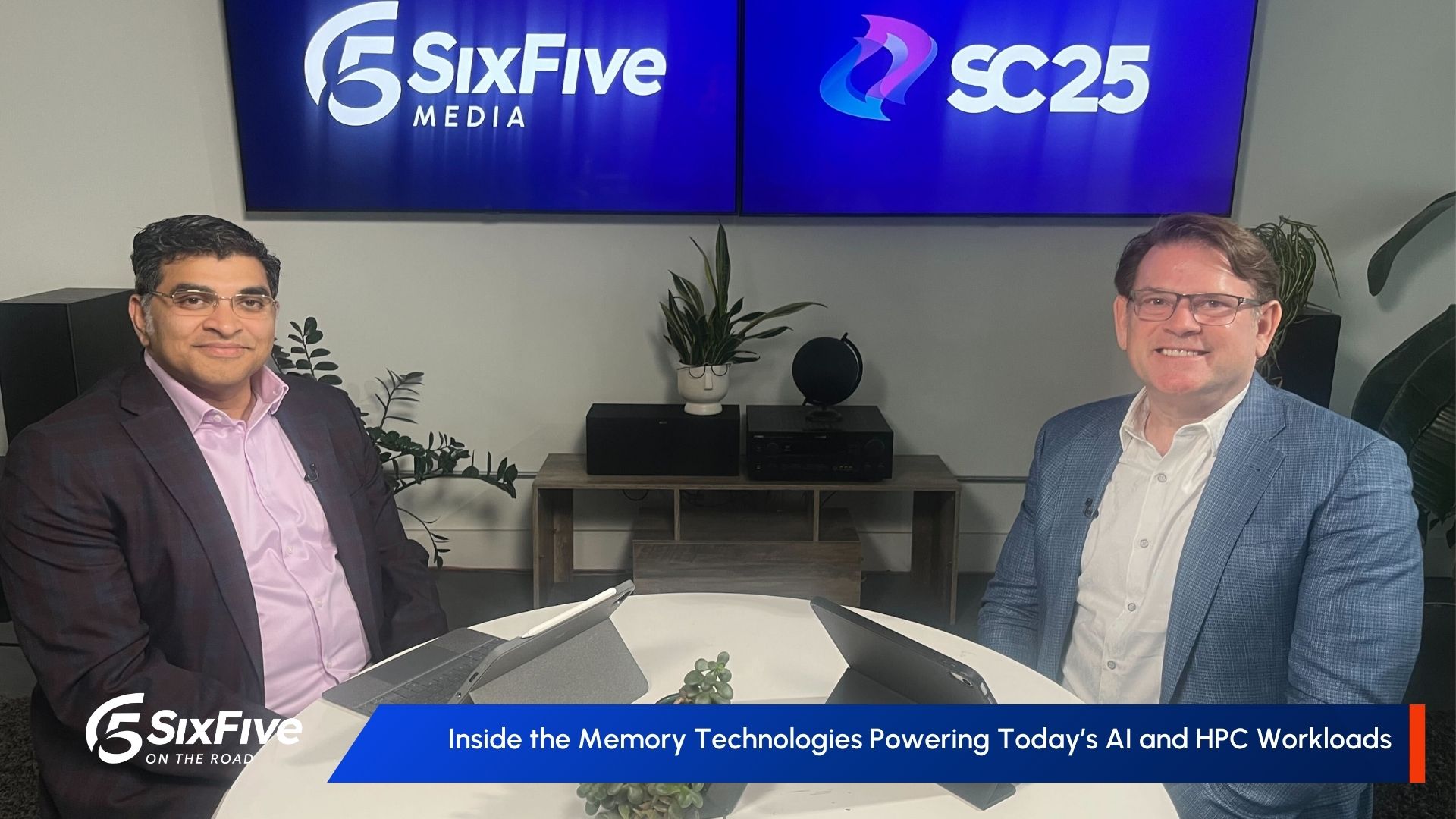
Inside the Memory Tech Powering Today’s AI and HPC Workloads – Six Five On The Road
Girish Cherussery, VP/GM AI Solutions at Micron, joins David Nicholson to explore the latest memory technologies powering AI and HPC, breaking down current bottlenecks, emerging architectures, and what data center leaders need to know now.

The View from Davos with Snowflake: From AI Ambition to Enterprise Impact
AI ambition is everywhere. Enterprise impact is not. From Davos, this session with Sridhar Ramaswamy, Patrick Moorhead, and Daniel Newman examines why data foundations, governance, and execution discipline now determine which organizations can turn AI into real business outcomes.
Other Categories
CYBERSECURITY
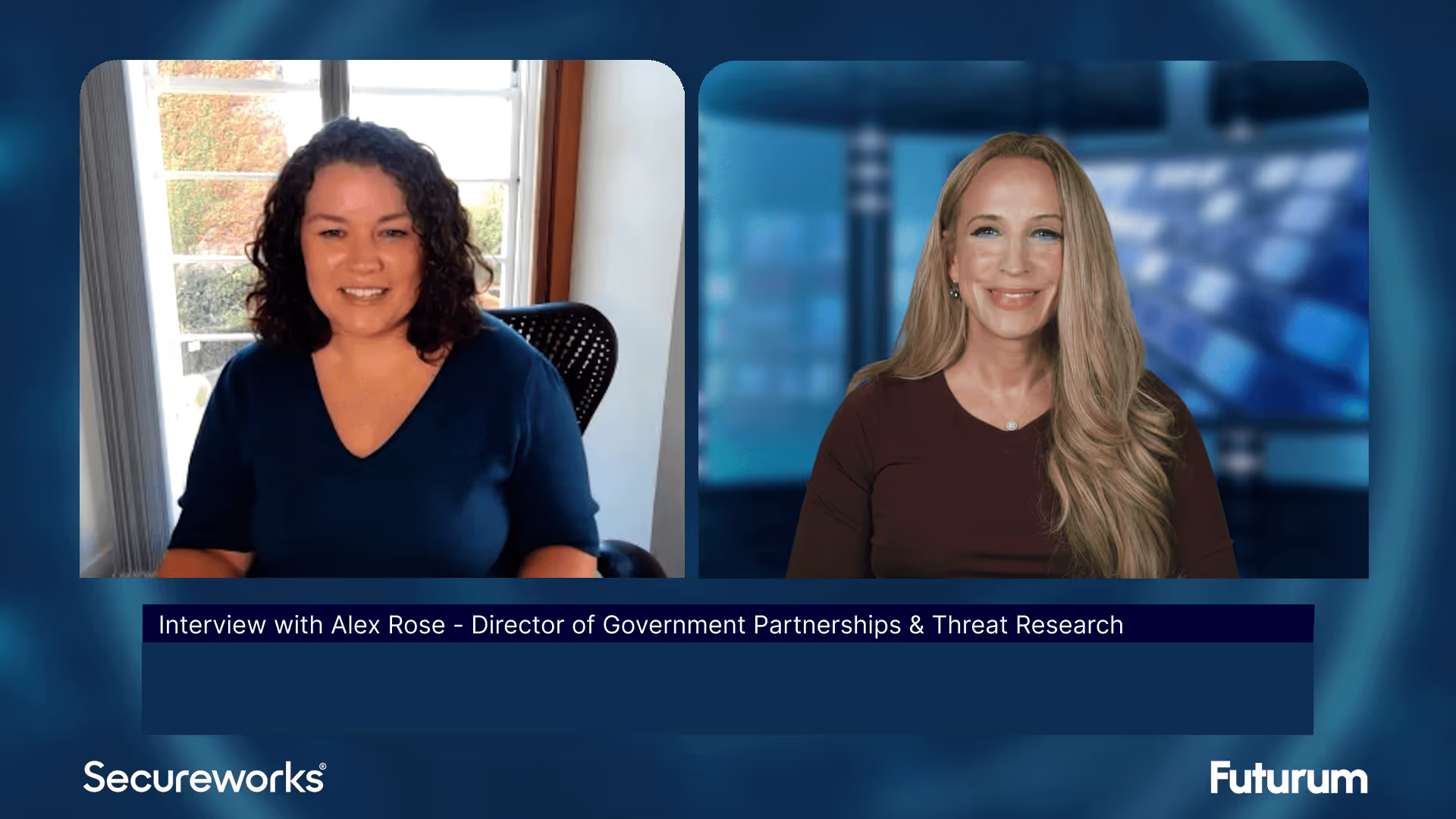
Threat Intelligence: Insights on Cybersecurity from Secureworks
Alex Rose from Secureworks joins Shira Rubinoff on the Cybersphere to share his insights on the critical role of threat intelligence in modern cybersecurity efforts, underscoring the importance of proactive, intelligence-driven defense mechanisms.
QUANTUM
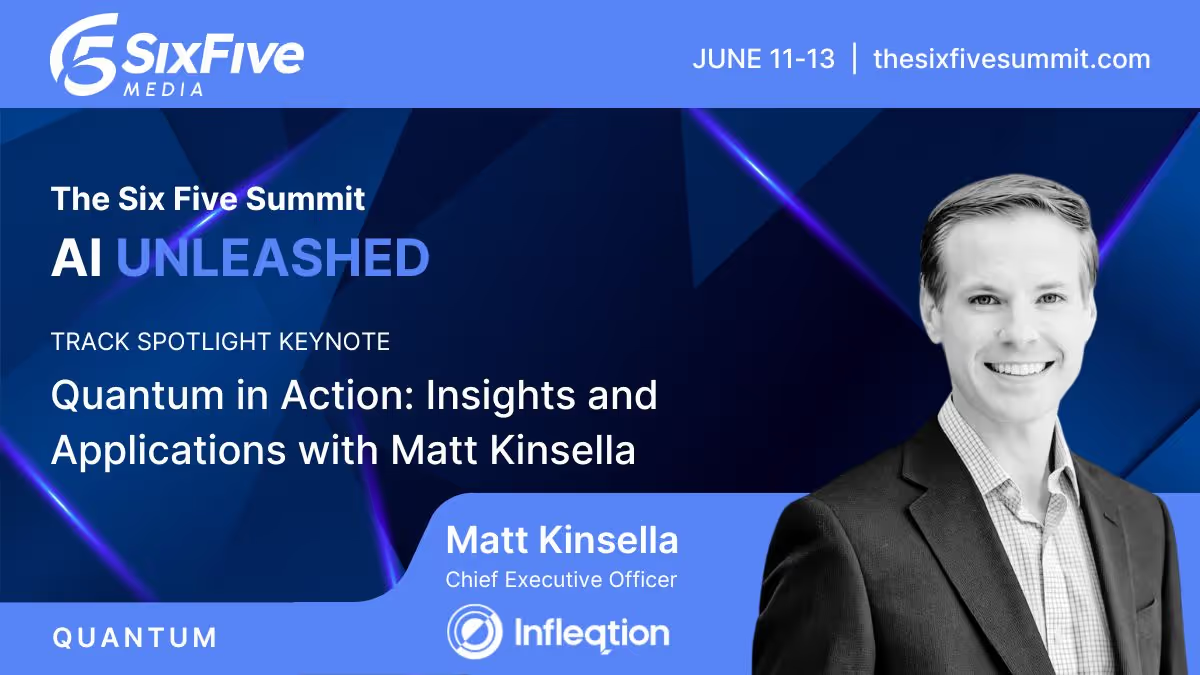
Quantum in Action: Insights and Applications with Matt Kinsella
Quantum is no longer a technology of the future; the quantum opportunity is here now. During this keynote conversation, Infleqtion CEO, Matt Kinsella will explore the latest quantum developments and how organizations can best leverage quantum to their advantage.
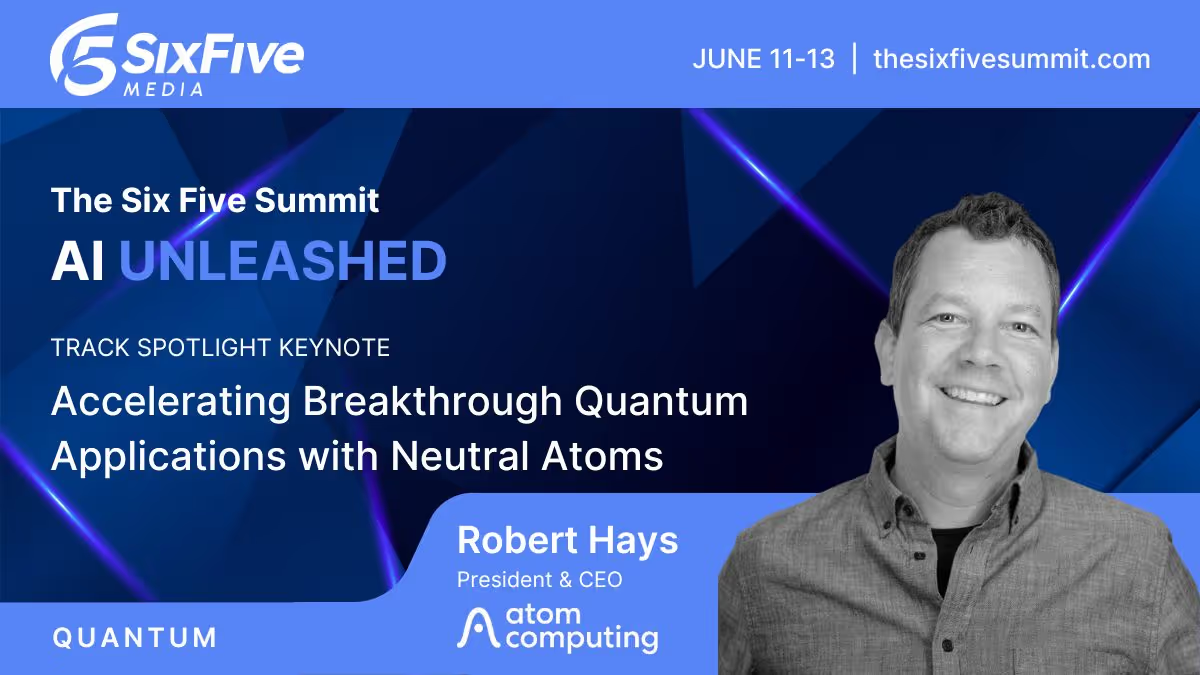
Accelerating Breakthrough Quantum Applications with Neutral Atoms
Our planet needs major breakthroughs for a more sustainable future and quantum computing promises to provide a path to new solutions in a variety of industry segments. This talk will explore what it takes for quantum computers to be able to solve these significant computational challenges, and will show that the timeline to addressing valuable applications may be sooner than previously thought.




